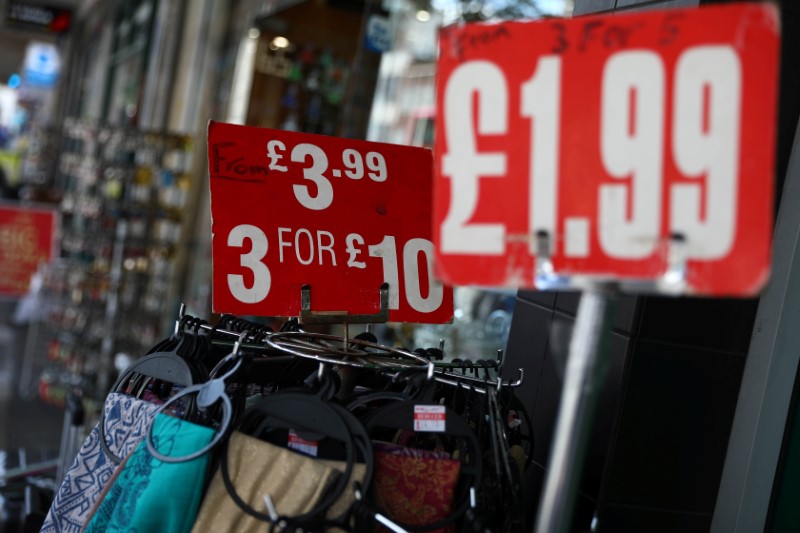LONDON, Nov 14 (Reuters) - British inflation held at its highest level in five-and-a-half years in October, and wrong-footed expectations from the Bank of England and other economists that it would hit a new peak.
Consumer price inflation held at an annual rate of 3.0 percent in October, the Office for National Statistics said, below economists' average expectation in a Reuters poll for a 3.1 percent annual rise.
The BoE said this month, after it raised interest rates for the first time in a decade, that inflation would probably peak at 3.2 percent in October and then fall slowly to just above its 2 percent target in three years' time.
Tuesday's figures are likely to reinforce doubts among economists about the wisdom of the BoE's decision to raise rates at a time when the economy is sluggish, especially as the effect of last year's Brexit vote on import prices was already at its high point.
BoE Governor Mark Carney has said the overshoot of the 2 percent target was due to the effect of the more than 10 percent fall in the pound after last year's Brexit vote pushing up the price of imported goods.
British inflation surged from a subdued 0.5 percent at the time of the Brexit vote in June 2016 to its highest since April 2012 in September.
The ONS said October's steady reading reflected falls in fuel prices being offset by a higher cost of food - including a noticeable impact from more expensive potato crisps.
The alternative measure of retail price inflation, which is used to calculate payments on government bonds and many commercial contracts, rose to a near six-year high of 4.0 percent - bad news for finance minister Philip Hammond as he prepares an annual budget due on Nov. 22.
However, the failure of consumer price inflation to exceed 3 percent means Carney will be spared a legal duty of having to write a letter to Hammond alongside next month's rate decision, explaining why inflation is more than a percentage point above target.
Many economists criticized the BoE's decision to raise rates earlier this month. They say inflation is on track to fall as the worst of the inflationary impact of the weak pound passes, and there are few signs that Britain's slow-growing economy is likely to overheat and generate above-target inflation on its own.
However, the BoE says that leaving the EU will damage Britain's ability to grow as fast as before without generating excess inflation, and that the lowest unemployment rate since 1975 makes labor shortages and a rebound in wage growth a risk.
Tuesday's data confirmed that some underlying price pressures are easing.
Costs of manufacturers' raw materials - much of them imported - were 4.6 percent higher than in October 2016, down from an inflation rate of 8.1 percent in September. This was the rate of producer input price inflation since July 2016, a month after the Brexit vote when the effect of the pound's fall was first being felt on the sterling cost of imported commodities.
Economists polled by Reuters had expected a fall to 4.8 percent.
Manufacturers increased the prices they charged by an annual 2.8 percent compared with 3.3 percent in September, the lowest since November 2016 and below forecasts for this to slow to 2.9 percent.
The ONS also said prices in September rose by an annual 5.4 percent across the United Kingdom as a whole compared with 4.8 percent in August, the biggest increase in almost a year. Prices in London alone remained soft, rising by 2.5 percent, the weakest since February.

(